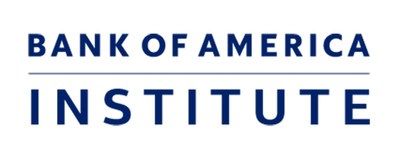BofA Data Finds Consumers Proved Resilient in 2022 and Poised to Start 2023 in Decent Financial Shape
Bank of America Institute's recent publication reveals that American consumers maintain strong financial health despite inflationary pressures. Median household savings and checking balances are above pre-pandemic levels. November card spending per household increased by 1.7% YoY, indicating resilience in consumer spending, especially in services. The report noted a significant rise in Buy Now Pay Later (BNPL) use, growing from 0.3% in 2019 to 2% of online card spending. While credit and debit card spending rose 4% YoY, total payment growth slowed due to a 31% YoY decrease in wire payments.
- Median household savings above pre-pandemic levels.
- Total card spending per household up 1.7% YoY in November.
- Total payments increased 4% YoY in November.
- Significant growth in Buy Now Pay Later options, now 2% of total online card spending.
- Total card spending growth slower compared to October's 3.1%.
- Weakening payment growth partly due to a 31% YoY decline in wire payments.
Insights
Analyzing...
Despite soft retail spending in November, holiday shopping picking up; BofA Data shows a pronounced rise in Buy Now Pay Later purchases
NEW YORK, Dec. 8, 2022 /PRNewswire/ -- Bank of America Institute released a new publication today which shows that the American consumer continues to remain in good shape throughout the course of 2022 and is starting 2023 similarly.
Median household savings and checking balances remain well above pre-pandemic 2019 levels across all income cohorts. While there are increasing signs that these "buffers" are being drawn upon – likely due to high inflation and rising housing costs – they should be available for some time yet. Most consumers across the income distribution are not spending more on credit relative to debit cards compared to 2019 levels. Only those with incomes above
Turning to the holiday shopping season, November saw continued growth in total card spending per household across retail and services, up
Other highlights of the publication include:
- Bank of America total payments increased
4% year over year (YoY) in November; this figure offers a holistic view of money flow and includes credit card, debit card, ACH (automated clearing house), wires, bill pay, person-to-person, cash and checks. - Within this, overall credit and debit card spend, which makes up over
20% of total payments, was also up4% YoY. - Total card spending per household was up
1.7% YoY in November, down from3.1% YoY in October, and remained lower than inflation. - The weakening in overall payments growth is due partly to a slowdown in the growth of wire payments, down
31% YoY in November.
"As we take a temperature check of the American consumer, we find they have proven resilient throughout 2022," said David Tinsley, senior economist for Bank of America Institute. "While 2023 is likely to be more challenging, especially if the labor market deteriorates, consumers are starting the year in good overall financial health."
Consumer Checkpoint is a regular publication from Bank of America Institute. It aims to provide a holistic and real-time estimate of US consumers' spending and their financial well-being, leveraging the depth and breadth of Bank of America proprietary data. Such data is not intended to be reflective or indicative of, and should not be relied upon as, the results of operations, financial conditions, or performance of Bank of America.
See the Consumer Checkpoint for methodology and definitions.
Bank of America Institute is dedicated to uncovering powerful insights that move business and society forward. Established in 2022, the Institute is a think tank that draws on data and analyses from across the bank and the world to provide timely and original perspectives on the economy, Environmental, Social and Governance (ESG), and global transformation. The Institute leverages the depth and breadth of the bank's proprietary data, from 67 million consumer and small business clients, 54 million verified digital users,
Bank of America is one of the world's leading financial institutions, serving individual consumers, small and middle-market businesses and large corporations with a full range of banking, investing, asset management and other financial and risk management products and services. The company provides unmatched convenience in the United States, serving approximately 68 million consumer and small business clients with approximately 3,900 retail financial centers, approximately 16,000 ATMs, and award-winning digital banking with approximately 56 million verified digital users. Bank of America is a global leader in wealth management, corporate and investment banking and trading across a broad range of asset classes, serving corporations, governments, institutions and individuals around the world. Bank of America offers industry-leading support to approximately 3 million small business households through a suite of innovative, easy-to-use online products and services. The company serves clients through operations across the United States, its territories and approximately 35 countries. Bank of America Corporation stock (NYSE: BAC) is listed on the New York Stock Exchange.
Reporters may contact:
Melissa Anchan, Bank of America
Phone: 1.646.532.9241
melissa.anchan@bofa.com
![]() View original content to download multimedia:https://www.prnewswire.com/news-releases/bofa-data-finds-consumers-proved-resilient-in-2022-and-poised-to-start-2023-in-decent-financial-shape-301698202.html
View original content to download multimedia:https://www.prnewswire.com/news-releases/bofa-data-finds-consumers-proved-resilient-in-2022-and-poised-to-start-2023-in-decent-financial-shape-301698202.html
SOURCE Bank of America Corporation







